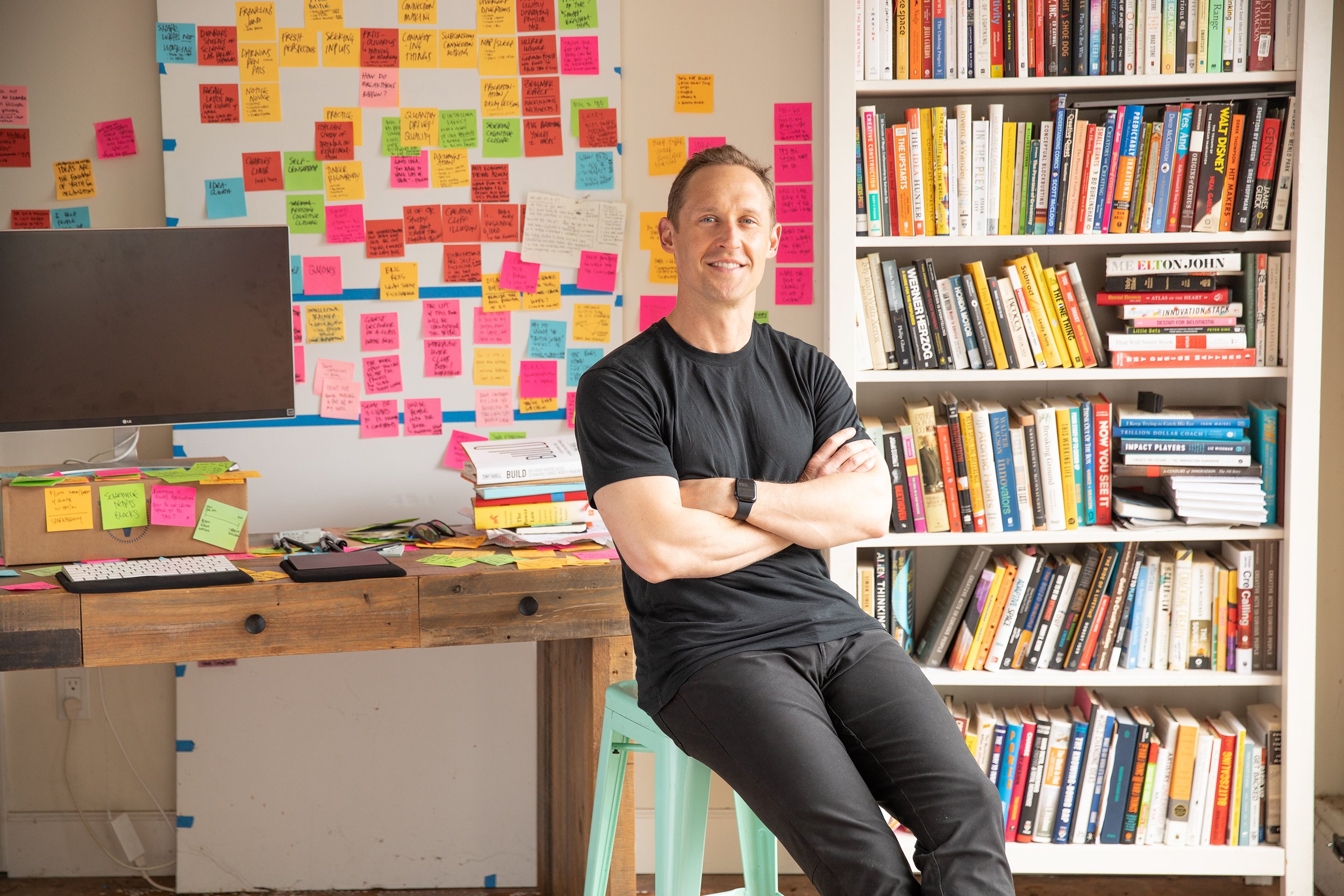
Paint + Pipette
A blog on the art & science of creative action.
Forget About “New Ideas”
Two words most commonly associated with ideas are “good,” and “new.” I’ve often encouraged folks to forget “good.” Here’s the case for forgetting, “new,” too.
Have and Share a Bad Idea
From Steve Jobs to Taylor Swift to Seth Godin, there’s remarkable consistency among “the greats”: having bad ideas is a necessary precondition to having good ones.
Can AI make brainstorming less mind-numbing?
Financial Times Opinion Piece featuring our AI research:
”Generative tech is improving work — but employees need to be as smart as their new assistants”
Prune Your Ideas
To stimulate innovation, ideas and experiments are critical. But how to free up resources necessary to drive new initiatives forward? Start by pruning back some work that’s past its prime. Here’s how.
Take A First Try
Ed Catmull reveals the great secret behind Pixar’s success: they try before they’re perfect. “All our movies suck to begin with. Our job is to take them from suck to not suck.”
Practice in Community
Want to accelerate your pace of learning? Join a community of practice. We learn much more amongst fellow-learners eager to share insights from experiments conducted in radically different contexts.
Decide To Not Decide
Some decisions are so important they’re worth waiting to make. As Tina Fey discovered in one of the most important decisions of her career, delaying a decision is a legitimate creative strategy.
Find Your People
New domains — whether hobbies or entrepreneurial ventures — are fraught with risk and failure. One way to hack the learning curve is to find fellow learners committed to the craft. Find your people, and you accelerate exponentially.
Flex Your Creative Muscle
Creativity is not a binary, either-you-have-it-or-you-don’t sort of thing. David Kelley once told me, “People fail to realize that the first-order goal is to be getting in practice. The first step is training your mind to think differently.”
Test Your Material
Seinfeld brilliantly details the core molecular structure of the creative process: equal parts idea generation and scientific testing. And he approaches the process with yeoman’s determination.
Express Appreciation
As holiday season comes upon us, it’s worth considering the outsized impact that simple gestures like expressing appreciation for others can have on our collective creative potential. One of the highest-ROI activities you can pursue is spurring someone else on in their craft.
Commit An Epiphany
Inside every single human being lies the potential to discover hence-unknown possibilities, to have an epiphany. My mission in life is to teach others the tools that turn that seemingly-magical moment into a methodical, repeatable reality.
Turn Off Critical Thinking
Dr Charles Limb, a Johns Hopkins neuroscientist obsessed with improvisational jazz, conducted a fascinating study on creative flow. It has profound implications for what we practice, and what we value, in our individual lives and organizations.
Seek Fresh Input
The instinct to get out into the world for inspiration is one that’s got to be cultivated. Malcolm Gladwell, Tina Fey, and Twyla Tharp all have slightly different recommendations… but they rhyme!
Deploy A Diversion
Amos Tversky said, "The secret to doing good research is always to be a little underemployed. You waste years by not being able to waste hours." Here are some tactics for productively wasting hours…
Make Space to Fail
Business leaders should take a page out of one of the most brutally-straightforward innovation laboratories in the world: lessons from Jerry Seinfeld and Steve Martin’s stand-up routines.
Emphasize Desirability
Bernard Arnault became the richest man in the world — surpassing Musk, Bezos, and Buffet — not by focusing on profitability, but by foregrounding desirability. We all should.
Embrace the Outsider
It’s a well-known fact that Albert Einstein shattered the paradigm of physics as an “unqualified” outsider. Some might suggest his lack of status was actually a benefit.
Reflect on Experiments
Steve Martin’s reflection routine as a fledgling magician gives a masterclass in learning through experimentation: if you don’t reflect, you can’t connect the dots in unexpected ways.
Try Something Now
One of the greatest misconceptions in innovation is that folks start with a good idea. How rarely that’s true. Here’s to starting, followed by enlightened iteration.



















